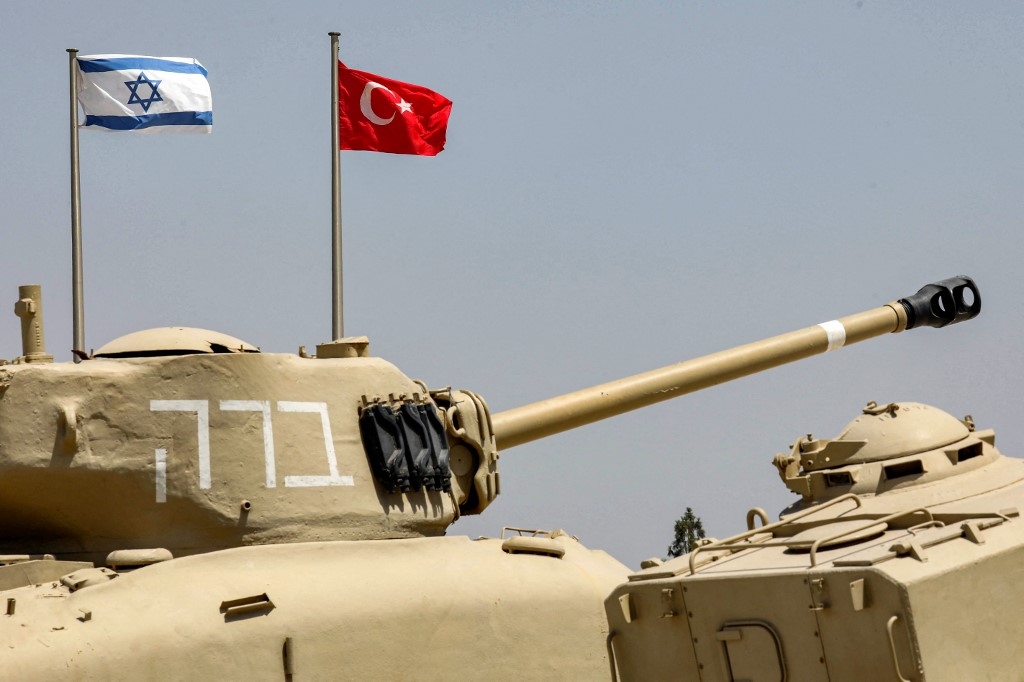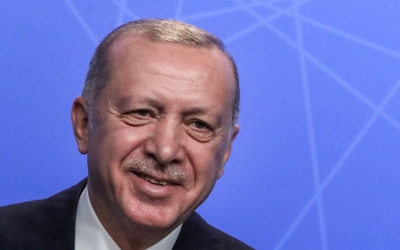Turkey: Book reveals Israeli intelligence deals cancelled in 2010

Turkey cancelled its intelligence cooperation deals with Israel in 2010 following the Gaza flotilla raid, when Israeli soldiers killed nine Turkish citizens and wounded 50 others, a new book has revealed.
The book, The National Intelligence Agency 1826-2023, written by Turkish historian Polat Safi, explores how Turkey had established closer relations with Tel Aviv in the 1990s and how that cooperation evaporated as Ankara sought a more independent foreign policy in the region.
Safi, who was able to read through the Turkish official security archives in a year-long study, writes that Turkey moved closer to Israel, as Ankara needed regional partners to fight the Kurdistan Workers’ Party (PKK) in northern Iraq in the mid-1990s.
Ankara first signed F-4 fighter jets modernisation deals with Israel and then military cooperation agreements followed in 1996.
A year later, the cooperation was moved a step further. Turkey's national intelligence agency MIT and Mossad signed a crucial human intelligence cooperation agreement on 2 May 1997, which allowed both secret services to dispatch and manage informants and personnel in each other’s countries, provided that the other party was informed in advance.
New MEE newsletter: Jerusalem Dispatch
Sign up to get the latest insights and analysis on Israel-Palestine, alongside Turkey Unpacked and other MEE newsletters
The deal was groundbreaking because it effectively allowed Mossad to undertake intelligence operations in Turkey.
Safi writes that relations between Turkey and Israel took a negative turn in 2008 after Ankara decided to deepen energy cooperation with Iran, in order to cut its gas reliance on the Russian Federation and Azerbaijan.
Ankara’s attempts to broker an atomic deal between Iran and the West further eroded Israeli-Turkish relations.
Turkey, at the same time, was accusing Tel Aviv of not upholding the conditions set by the 1997 deal.
Bilateral relations were going through difficult times after Turkish President Recep Tayyip Erdogan walked off the stage after an angry exchange with then-Israeli president Shimon Peres during a pencil discussion on Gaza at the World Economic Forum in 2009, blaming Israel for killing children and civilians.
Finally, on 25 May 2010, just four days after the new MIT Undersecretary Hakan Fidan took office, Israel raided the Mavi Marmara ship carrying humanitarian aid to Gaza, killing nine Turkish citizens and wounding 50 others.
“MIT hardly benefited from the HUMINT protocol, which was signed twice, on May 2, 1997 and January 17, 2001," Safi wrote.
"On the other hand, Israel had directed and managed personnel in Turkey since the 2000s and had mostly avoided informing MIT while carrying out these activities, contrary to the terms of the protocol."
“Moreover, according to MIT, Mossad was abusing bilateral relations and conducting third country operations from Turkey. By 2010, when there were signs that Mossad not only violated the protocol provisions, but also abused the protocol, MIT intervened and accordingly Mossad would close its liaison office in Ankara towards the end of the year."
"The closure of the Mossad liaison office meant that the close relationship of nearly half a century between the Turkish and Israeli intelligence, which was generally uneventful despite its ups and downs and had its golden age between 1990-2000, came to an end.”
Safi says the first signs of Israeli displeasure against Fidan surfaced in Haaretz on 7 June 2010 where Israeli sources blamed Fidan for working closely with Iran and then-Israeli Defence Minister Ehud Barak told Israeli Army Radio that he was worried that classified Israeli information could end in the hands of Iran following Fidan’s appointment as MIT head.
However, the Turkish-Israeli intelligence work later helped both countries to resolve their issues. As their cooperation grew again in 2020, Ankara and Tel Aviv normalised their relationship with Israeli President Isaac Herzog visiting Ankara the next year.
Turkey and Israel also planned for an official visit by Israeli Prime Minister Benjamin Netanyahu this week to Ankara, but his pacemaker surgery and the domestic crisis within Israel prompted by his judicial reforms postponed the trip.
Middle East Eye delivers independent and unrivalled coverage and analysis of the Middle East, North Africa and beyond. To learn more about republishing this content and the associated fees, please fill out this form. More about MEE can be found here.


